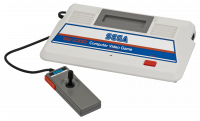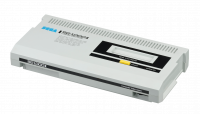SG-1000:SG-1000 Mods Wiki: Difference between revisions
No edit summary |
mNo edit summary |
||
| Line 31: | Line 31: | ||
* [[SG-1000:Video Output Notes]] | * [[SG-1000:Video Output Notes]] | ||
* <s title="Placeholder - Guide not created yet!" class="visible"> [[SG-1000:TMS RGB Mod]] </s> [https://videogameperfection.com/products/tms-rgb-v2-board/ <sup>(1)</sup>] | * <s title="Placeholder - Guide not created yet!" class="visible"> [[SG-1000:TMS RGB Mod]] </s> [https://videogameperfection.com/products/tms-rgb-v2-board/ <sup>(1)</sup>] | ||
* <s title="Placeholder - Guide not created yet!" class="visible"> [[SG-1000: | * <s title="Placeholder - Guide not created yet!" class="visible"> [[SG-1000:RGB Mod]] </s> | ||
* <s title="Placeholder - Guide not created yet!" class="visible"> [[SG-1000:Composite Mod]] </s> | * <s title="Placeholder - Guide not created yet!" class="visible"> [[SG-1000:Composite Mod]] </s> | ||
</div> | </div> | ||
Revision as of 22:07, 27 February 2023
The Sega SG-1000 ("Sega Game 1000") is an 8-bit console from the third generation of video game consoles. It was Sega's first game console, launched in Japan on July 15, 1983 with later releases in New Zealand and Taiwan. The console was also supposedly released in Australia, Italy, and Spain. Released alongside the SG-1000 was the SC-3000 ("Sega Computer 3000"), a home computer variant with a built-in keyboard and additional RAM. A further revision, the SG-1000 II, was released in 1984 which updated the console's look. Although the SG-1000 was vastly overshadowed by Nintendo's Family Computer (released on the same day), it gave the company valuable experience in the home video game market and the console formed the basis for the vastly more successful Sega Master System.
General Information
Technical Information
Video Information
Flash Carts
|
Other |

